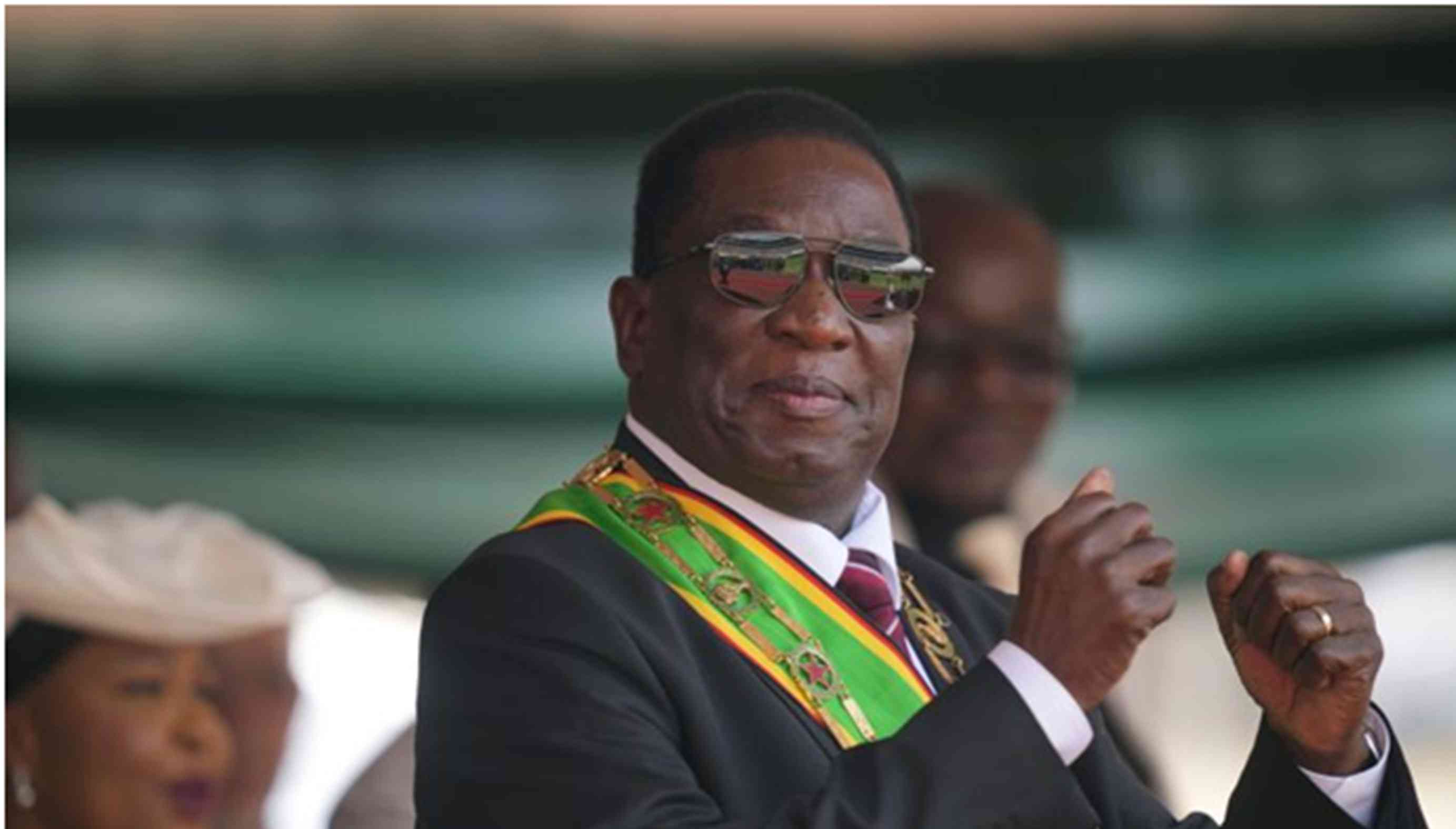
IN the midst of Zimbabwe's enduring economic turmoil, President Emmerson Mnangagwa's inauguration speech has thrust the nation into a moment of reckoning.
At the heart of his address revolved around the development philosophical maxim, “nyika inovakwa neve vayo, inotongwa nevene vayo, igonamatirwa nevene vayo” (the land is built, ruled and prayed for by its own people).
From a policy perspective, it is imperative to critically analyse the implications of this rhetoric against the backdrop of Zimbabwe's multi-faceted challenges.
Zimbabwe is facing an uphill battle against soaring poverty, high levels of unemployment, and skyrocketing inflation. Mnangagwa's strong focus on self-reliance and dependence prompts important inquiries regarding the wisdom of this path and has sparked a crucial debate.
Is this inward-looking approach the most prudent course of action, particularly when international collaboration and support could offer viable solutions to these pressing issues?
In times of crisis, can isolationism truly serve Zimbabwe's best interests?
The concern is that isolating Zimbabwe from the global community may hinder access to foreign investments, which are crucial for stimulating economic growth and addressing the country's urgent needs.
Therefore, a nuanced evaluation is needed to determine the optimal balance between self-reliance and international engagement to effectively tackle Zimbabwe's complex economic challenges.
- Mavhunga puts DeMbare into Chibuku quarterfinals
- Bulls to charge into Zimbabwe gold stocks
- Ndiraya concerned as goals dry up
- Letters: How solar power is transforming African farms
Keep Reading
Mnangagwa's proposal for a national currency, anchored in the nationalism belief that is undeniably ambitious.
However, given the prevailing economic challenges and the history of hyperinflation in Zimbabwe, this may not be the most opportune moment for such a move.
It is crucial to consider the issue of confidence in the currency, especially when economic uncertainties persist. Rushing into introducing a national currency without addressing underlying issues could pose significant risks.
This initiative might be viewed as more of a nationalist and political stance rather than a well-timed and economically sound decision. While national currency holds promise, it necessitates meticulous planning and comprehensive economic reforms to ensure its success and the well-being of the Zimbabwean people.
Moreover, let us examine the situation closely if neighbouring countries and organisations, such as the Southern African Development Community (Sadc) and the African Union (AU) step in to facilitate Zimbabwe's journey towards conducting free, fair, and credible elections.
Mnangagwa's unwavering commitment to prioritising Zimbabwean interests is a matter deserving thoughtful consideration.
Does an absolute dedication to nationalism carry the risk of distancing Zimbabwe from crucial support and cooperation it desperately and urgently needs?
It is crucial to find the right balance between being independent and working together with nearby countries and the rest of the world.
The danger lies in potential isolation, where Zimbabwe might end up missing out on essential ties that could aid its recovery and development, particularly in the context of building a nation where the same people, who contribute to its development deserve free, fair, and credible elections as a fundamental facet of progress.
Achieving prosperity in today's interconnected world requires drawing from the experiences and knowledge of others. It means tapping into the support and expertise of the global community.
By working collaboratively with other nations and international organisations, Zimbabwe can access valuable resources, knowledge, and assistance that can play a pivotal role in addressing its challenges and fostering sustainable development.
In essence, striking a balance between self-reliance and international collaboration is crucial for Zimbabwe's progress.
It is not an either-or proposition but a nuanced approach that leverages the nation's strengths while acknowledging the benefits of learning from and working with the wider world.
This is likely to yield more comprehensive and enduring solutions to complex issues facing the country, ultimately benefiting its citizens, and contributing to a brighter future.
However, the issue of trust has become a rare commodity and a pressing concern in Zimbabwe. Mnangagwa made several promises during his previous five-year term, but many of these commitments were left unfulfilled, contributing to a growing disillusionment among the citizens.
To restore this trust, it is crucial that actions speak louder than words. Tangible progress must be the bedrock upon which renewed confidence is built. Zimbabweans need to see real, meaningful changes in their daily lives to regain faith in their leadership.
In conclusion, championing self-reliance and national pride spark crucial concerns regarding its practicality and ramifications for Zimbabwe's growth.
When we delve into the realm of policy analysis, it becomes evident that a more holistic approach is imperative. This should encompass international collaboration, the balanced development of urban and rural areas, the pursuit of economic stability, and the crucial task of restoring trust through tangible achievements.
Zimbabwe currently finds itself at a pivotal moment, where the nation's policies must be grounded in a nuanced understanding of the multi-faceted challenges it confronts.
It is only through such a comprehensive strategy that Zimbabwe can navigate its path forward successfully and work towards a brighter future for its citizens.
- Ngezi is a writer based in Canada. He is a policy analyst with the government of Alberta and has vast experience in public policy, economics and politics.






